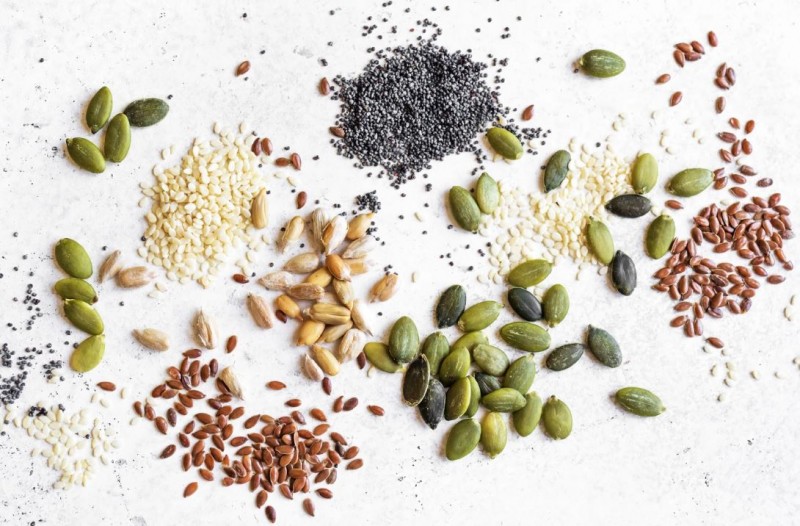
Seeds are often hailed as nutritional powerhouses, packed with essential nutrients and healthy fats. However, not all seeds are created equal. While many seeds provide numerous health benefits, there are certain types that can be harmful or unhealthy when consumed. In this article, we will explore five types of seeds that should be avoided for the sake of your well-being.
Apple Seeds
Apple seeds, like those of other fruits in the rose family (such as cherries, apricots, and peaches), contain a compound called amygdalin, which can release cyanide when metabolized. Consuming a small number of apple seeds is unlikely to cause harm, as the body can handle small amounts of cyanide. However, ingesting large quantities of apple seeds over time can lead to cyanide poisoning, resulting in symptoms like dizziness, headaches, and even more severe health issues.
Castor Seeds
The castor plant produces seeds that contain ricin, a highly toxic protein. Even a small amount of ricin can be deadly if ingested. Symptoms of castor seed poisoning can include vomiting, diarrhea, abdominal pain, and organ damage. Due to the potential severity of its toxicity, it is crucial to avoid consuming castor seeds or any products made from them.
Ackee Seeds
Ackee is a tropical fruit native to West Africa, and its seeds contain a toxin called hypoglycin. When consumed improperly or underripe, ackee seeds can cause Jamaican Vomiting Sickness, a condition characterized by symptoms such as severe vomiting, low blood sugar levels, and in extreme cases, coma or death. It is essential to consume ackee seeds only when fully ripe and properly prepared to minimize the risk of toxicity.
Apricot Seeds
Apricot seeds, also known as bitter almonds, contain a compound called amygdalin, similar to apple seeds. When ingested, amygdalin can release cyanide. While proponents of alternative medicine suggest that apricot seeds have potential health benefits, the risks associated with cyanide exposure outweigh any possible benefits. Consuming large amounts of apricot seeds can lead to cyanide poisoning, causing symptoms ranging from dizziness and headaches to more severe neurological effects.
Nutmeg Seeds
Nutmeg is a popular spice obtained from the seed of the Myristica fragrans tree. While nutmeg is safe and commonly used in small culinary quantities, consuming large amounts of nutmeg seeds or their extracts can lead to nutmeg intoxication. Symptoms of nutmeg intoxication include nausea, hallucinations, dizziness, and irregular heartbeat. In extreme cases, it can lead to seizures or even coma.
While seeds are generally celebrated for their nutritional value and health benefits, it is crucial to be aware of the types of seeds that can be harmful when consumed. Apple seeds, castor seeds, ackee seeds, apricot seeds, and nutmeg seeds all contain compounds that can lead to adverse health effects or even toxicity when ingested in significant quantities. As with any aspect of your diet, moderation and informed choices are key to maintaining good health. If you are uncertain about the safety of consuming certain seeds, it is always wise to consult with a healthcare professional before incorporating them into your diet.
Managing Rare Cardiovascular Diseases: Insights into Treatment and Outlook
Intoxication: A Catalyst for Devastation, UP CM on Youth Day